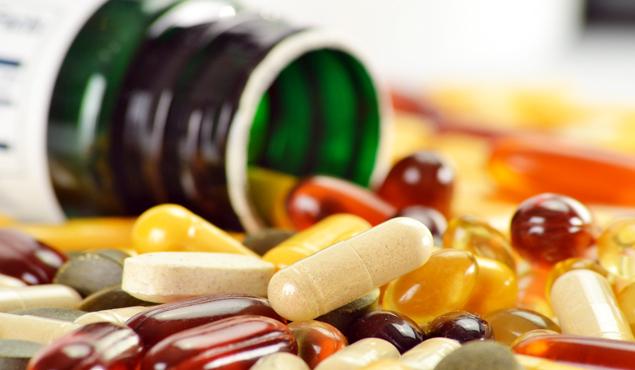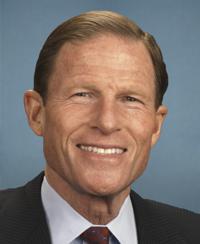Every week for the past 7½ years, the U.S. Food and Drug Administration has identified an average of two dietary supplements being sold to consumers that were “tainted” and “potentially hazardous,” a C-HIT analysis of data reveals.
The supplements contained prescription drug ingredients, controlled substances or untested pharmaceutical ingredients, which is prohibited by federal law and “can pose considerable dangers to consumers,” including stroke, liver damage, kidney failure and death, according to the FDA.

Annual sales of dietary supplements reached $35 billion.
C-HIT’s analysis of FDA data reveals 615 dietary supplements that were identified as tainted since Jan. 1, 2008. In the first half of this year alone, 59 tainted dietary supplements were posted on the FDA’s site.
In July, the U.S. Department of Justice took court action against two supplement companies in Montana and Iowa for illegally selling or distributing prohibited or misbranded products. While some violations prompt legal action, regulators acknowledge that they are overmatched in their ability to monitor the supplements.
The FDA says the tainted supplements in its database are a small fraction of the potentially hazardous products with hidden ingredients marketed to consumers on the Internet and in retail establishments.
U.S. Sen. Richard Blumenthal, D-Conn., is calling for a crackdown on the dietary supplements industry. He is working with U.S. Sen. Dick Durbin, D-Ill., to reintroduce the Dietary Supplement Labeling Act, which, Blumenthal says, would help consumers distinguish between supplements that are safe and those that may have serious side effects or drug interactions. The bill would require more information on product labels and give more authority to the FDA to require manufacturers to register their products and ingredients and provide proof of any health-benefit claims.
“The dietary supplement market is a dangerous Wild West of inadequate regulation” that deprives consumers “of basic health and safety information” and results “in serious injuries and deaths.” Blumenthal says. “Without more transparency regarding the dangers of these products—and more scrutiny over the often outrageous health benefit claims—consumers simply have no way to know what they are taking.”
Industry leaders say, however, that an overwhelming majority of companies sell safe products that include no illegal ingredients and are beneficial to millions of Americans.
Steve Mister, president and CEO of the Council for Responsible Nutrition, a trade group that represents supplement manufacturers, says the 150 “legitimate, mainstream” companies in his organization are responsible for a majority of industry sales and are committed to quality products and compliance with federal regulations.
Most adults ingest dietary supplements, which the FDA defines as vitamins, minerals, herbs, extracts and other products “that aim to add nutritional value to a diet.”
During the past 15 years, the industry has exploded in popularity, pushing annual sales to $35 billion, according to the trade group. About 150 million adults nationally, or 7 out of every 10, ingest dietary supplements, the organization says. The supplements are sold in various forms, tablets, capsules, powders, energy bars and liquids.
Unlike drugs, which are subject to FDA approval, companies can manufacture and sell supplements without the agency’s approval. The FDA can take action if a dietary supplement contains undeclared ingredients, is found unsafe or if there are false or misleading claims about it.
Concerns about the safety of dietary supplements were raised after a pre-mature infant died in October 2014 in a Connecticut hospital after being treated with a probiotic supplement that was found to contain mold. In November, FDA scientists confirmed the presence of a mold species, Rhizopus oryzae, in unopened containers of Solgar ABC Dophilus Powder, which had been collected at the Connecticut hospital where the infant died. The FDA did not reveal the name of the child or the hospital.
According to the FDA, the infant “suffered from gastrointestinal mucormycosis,” a fungal infection, and the U.S. Centers for Disease Control and Prevention determined that mold caused the mucormycosis. Both agencies issued warnings following the infant’s death.
“The contaminant at issue was not identified at any point within the product’s supply chain under Solgar’s control,” says Andrea Staub, a spokeswoman for NBTY, the company that owns Solgar.
Staub says the findings were determined after “numerous facility and equipment inspections,” a review of operating procedures and tests of product samples by the FDA, CDC, independent laboratories and Solgar.
Blumenthal says the infant’s death underlines the need for better oversight of the supplements industry.

Congress.gov Photo
Sen. Blumenthal is calling for a crackdown on the dietary supplement industry.
The FDA states that “some supplements are useful in reducing the risk of certain diseases” and can make related claims on their labels. For example, folic acid supplements may make a claim about reducing the risk of birth defects of the brain and spinal cord.
Dietary supplements “are not intended to treat, diagnose, cure or alleviate the effects of diseases,” according to the FDA.
Mister says small companies, particularly many that sell their products on the Internet, are giving the industry a bad rap. The “fringes of the industry” sell products they call dietary supplements to “get them under the FDA’s radar screen” but include anabolic steroids or other illegal drugs, Mister says.
Supplements marketed for weight loss, bodybuilding and sexual enhancement, which are often labeled as “all natural,” are the most frequent violators, the FDA says.
C-HIT’s analysis of another FDA database found numerous warning letters sent in recent years to dietary supplement manufacturers, including four in Connecticut. Warning letters are issued for significant violations that “may lead to enforcement action if not promptly and adequately corrected.”
In July 2014, the FDA issued a warning letter to Klein Laboratories after inspecting its manufacturing facility in North Haven. The label for the company’s bodybuilding product, Osteojuv, “revealed serious violations” of federal regulations, including claims that it targets pain and inflammation, according to the FDA. Klein Laboratories did not respond to a request for comment.
In May 2012, a warning letter was sent to Middletown-based NatureMost of New England because its C-Complex tablets “failed to establish” required “component specifications for identity, purity, strength and composition.
The company’s CEO, Robert Trigo, says his “products have always been above board,” and “it’s very easy to get a warning letter” for many reasons. He says the product was discontinued.
A May 2011 warning letter was issued to Farmington-based Prostar after FDA inspectors “found a number of violations” of manufacturing regulations, including Prostar’s “release” of two bodybuilding products, Ultra Ripped capsules and Higher Power 100% Whey Power protein shake, before product testing was completed and reviewed.
Brian Rubino, Prostar’s vice president, said that the company submitted a corrective action plan that the FDA approved.
In February 2011, the FDA issued a warning letter to Middletown-based RHG 7 Company, which operates under the name Vital Nutrients. The agency said the company’s four supplements were “prepared, packed or held under conditions” that did not meet federal regulations. In 2008, the FDA also sent a warning letter to the company pointing out its DMSA dietary supplement was a drug.
Sarah Roller, a lawyer representing Vital Nutrients, said the company “promptly and successfully” resolved both matters. After the 2011 warning letter, Vital Nutrients “knuckled down” and was told by the FDA that it was in compliance with federal regulations. After the 2008 warning, the company “immediately discontinued” use of DMSA and hasn’t used the ingredient since, she says.
Small matter compared to tainted food, water, OTC drugs and prescription drugs, which kill people every day.